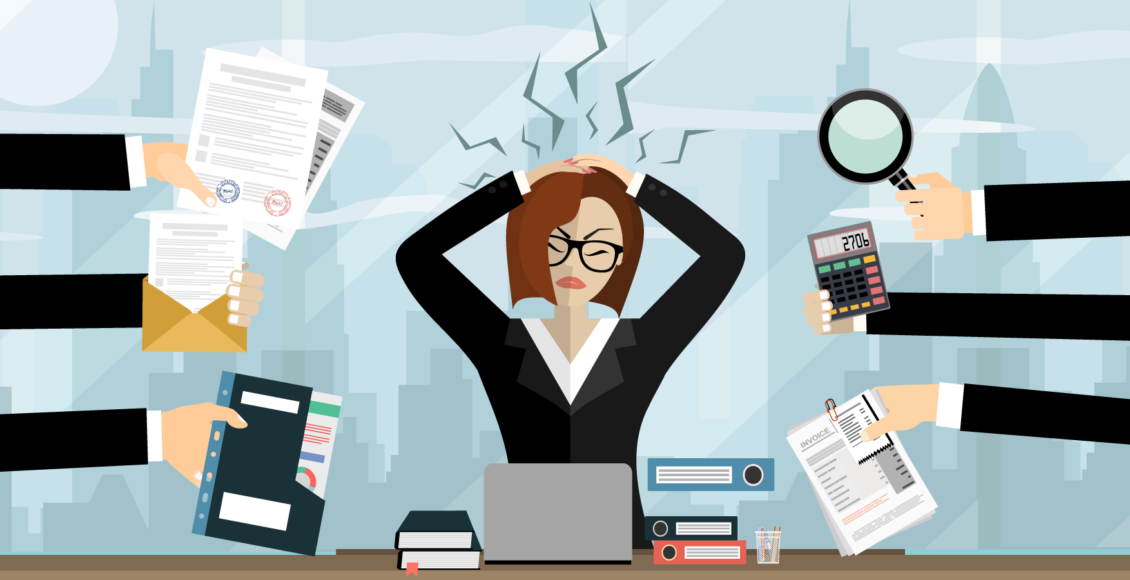The world of work today is undergoing a transformation that is both remarkable and unsettling. Offices, academic institutions and industries are experiencing shifts in structure, expectations and culture. ever The pressure to perform quickly, efficiently and continuously has increased. The boundaries between professional and personal life are dissolving. In this changing environment, workplace stress has become a widespread concern. It affects emotional health, productivity, relationships and the dignity of work itself.
Workplace stress emerges when the demands placed on an individual exceed the resources available to cope. It may arise from extended working hours, unclear responsibilities, lack of appreciation, job insecurity, rigid hierarchies or the fear of being replaced. The ancient philosopher Seneca once said, “We suffer more often in imagination than in reality.” Yet in the modern workplace, stress often becomes a reality that follows individuals from office desks to home spaces and even into their sleep.
A simple two-line story captures this condition. A man carried a heavy bucket of water every day. When asked why he did not put it down to rest, he replied, “If I stop, I may not be able to pick it up again.” Many workers today continue under constant strain, fearing that rest may cost them their value, their recognition or their future.
The rise of Artificial Intelligence has added a new dimension to this conversation. AI systems now perform tasks such as data sorting, customer support, scheduling, risk analysis and even decision making. This has created a mix of hope and anxiety among workers. Some fear that AI will replace humans entirely. Others see it as a tool that can improve efficiency and reduce unnecessary burdens.
The ILO, World Mental Health Report stress on job stress is a significant factor contributing to suicide, as the International Labour Organization reports that workers experiencing chronic workplace pressure are up to five times more likely to have suicidal thoughts.
It is important to understand that AI is not merely a threat. It also has the potential to mitigate human suffering in the workplace. AI can take over repetitive, physically draining and mentally monotonous tasks. For example, instead of an employee spending hours on data entry or document sorting, an AI system can complete the task within minutes. This allows the worker to focus on tasks requiring creativity, judgment and collaboration. AI can also assist in identifying early signs of stress by analyzing work patterns, and organizations can use this information to improve workload balance before burnout occurs. Moreover, AI driven virtual assistants can help employees manage time, schedule tasks and prioritize work, offering support that reduces pressure rather than intensifies it.
However, AI can also generate stress if used as a tool of surveillance or control. When employees feel constantly monitored, they may develop anxiety and lose trust. Therefore, the use of AI must be guided by ethical principles that protect the dignity of work. Albert Einstein reminded the world, “The human spirit must prevail over technology.” Technology should serve, not command.
The changing nature of jobs is also shaped by globalization, economic uncertainty and cultural evolution. The traditional model of a stable lifelong job is fading. Contract based work, project assignments and remote work are becoming common. Flexibility brings new opportunities but also insecurity. Workers must continuously learn new skills to remain relevant. In Pakistan, where unemployment and skill mismatch are already significant, these changes intensify pressure. Young graduates face difficulty finding jobs that match their qualifications. Employees in both public and private sectors struggle to maintain performance under limited resources and evolving expectations.
Alongside this, the culture of constant connectivity through phones and online platforms has dissolved the natural divide between home and office. Many individuals respond to work messages late at night or during family time. Rest is often seen as laziness rather than necessity. Yet, as Rumi observed, “When you are weary, rest. The Sun will rise again.” Sustainable work requires periods of renewal.
To address workplace stress, especially in modern contexts such as Pakistan, some practical and thoughtful recommendations are required.
First, workplaces must cultivate humane leadership. Managers should communicate with clarity, acknowledge human limitations and value cooperation over competition. A culture of respect reduces anxiety and strengthens long term performance. Second, governments and educational institutions should expand training in both digital literacy and emotional resilience. Workers must learn how to use AI tools effectively rather than fear them. At the same time, they should develop communication, adaptability and critical thinking. These are the human strengths that retain value even in a technological world. Third, individuals must establish healthy boundaries. Rest, family time, reflection and personal space are essential elements of a complete life. Work should be meaningful but not overwhelming. The wisdom of Aristotle remains relevant: moderation sustains balance.
In conclusion, workplace stress is a reality shaped by social pressures, economic conditions and technological change. AI has transformed the world of work, but its influence depends on how societies choose to guide and integrate it. When used ethically and thoughtfully, AI can reduce human burden, enhance creativity and protect wellbeing. The future of work should not be a struggle between human and machine, but a partnership that honors the dignity, intelligence and emotional depth of human life. Humans must remain at the center of work, not only as contributors to productivity but as beings deserving peace, respect and fulfillment. I think we should believe that when the world is erecting walls at workplace, somebody should build doors. Above all, humanity prevails.
Stay updated with the latest news, analyses, and daily happenings —
join
The Catchline’s official WhatsApp channel today!



